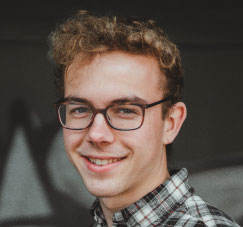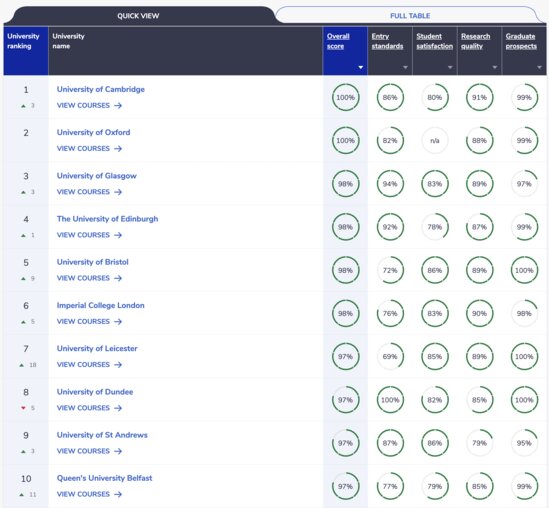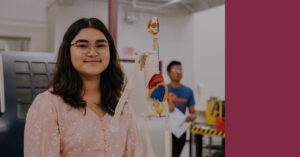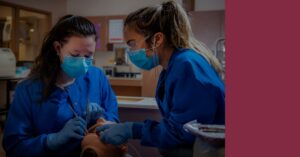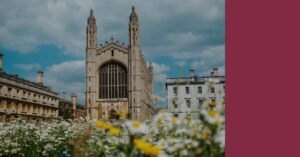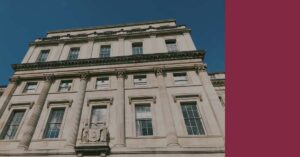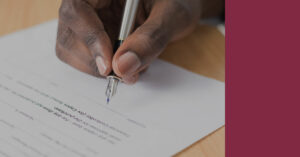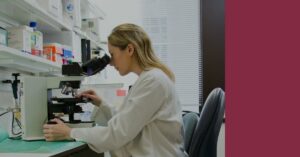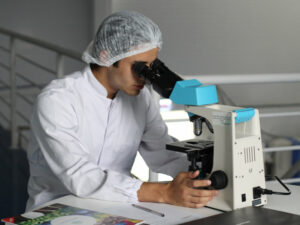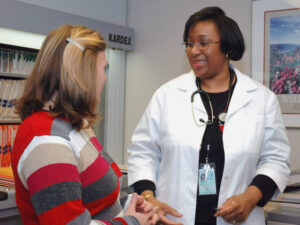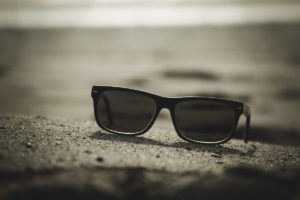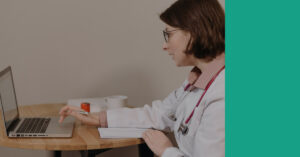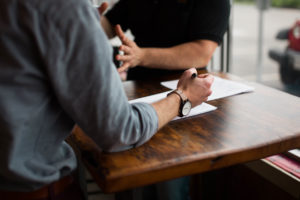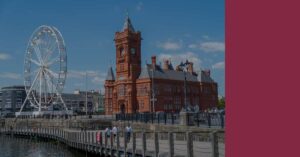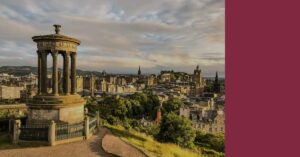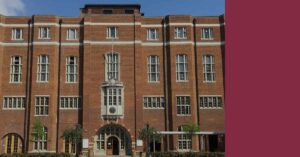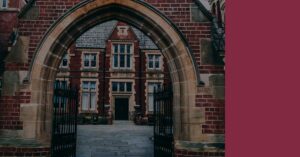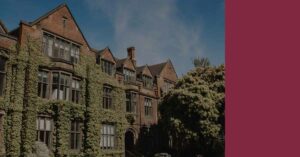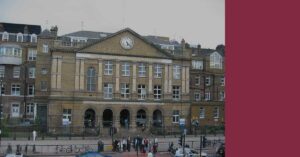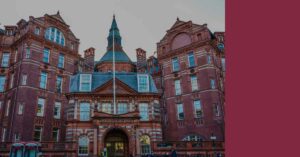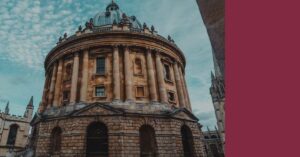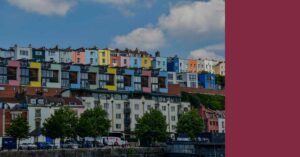Welcome to our UK Medical School Review series. In this series, we work with current students to produce an in-depth overview of each UK Medical School, covering what it is like to study there, how the course looks and what you need to get in.
Today we are exploring Glasgow Medical School, one of the highest ranking Medical Schools in Scotland and the UK as a whole. Khalid, a Glasgow Medic, will share his experiences and insights as a current student throughout.
Let’s start with some history of Glasgow Medical School…
Overview Of Glasgow Medical School
About Glasgow Medical School
Glasgow Medical School has a rich history dating back to 1751 when William Cullen was appointed Professor of Medicine. Since then, the School has moved a number of times and produced notable alumni such as Joseph Lister (surgeon), multiple Chief Medical Officers of Scotland (Ernest Macalpine Armstrong, Harry Burns and Sir Kenneth Calman), Emeli Sandé (singer and songwriter) and politicians including Liam Fox.
Glasgow offers one A100 Medicine Degree which is the MBChB course. It lasts 5 years and the curriculum is delivered through a range of teaching styles which include small-group teaching, problem-based learning, lectures, vocational and clinical studies, labs and e-learning.
Glasgow Medical School
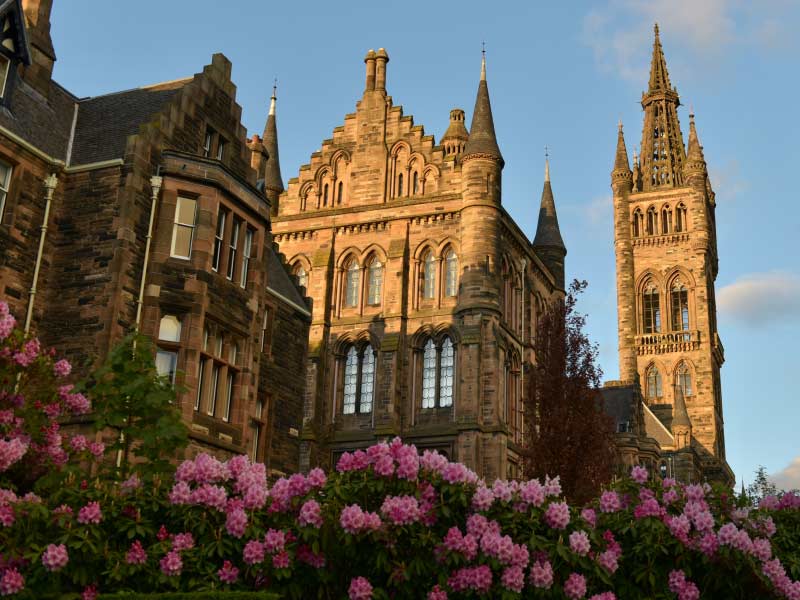
- University Age: 571
- UK Ranking: 3rd
- Pint Price: £3.00
- Alumni Notability: 7/10
- A-level Requirements: AAA
- Places Available: 230
- Applicant Success Rate: 16%
- Teaching Style: PBL and CBL
- Interview Style: Panel
- Admissions Test: UCAT
Why did you choose to study at Glasgow?
“The university was highly rated at my time of entry and was also free for EU. Furthermore, the Problem-Based Learning style and the spiral curriculum seemed to fit my style of learning. The city of Glasgow is incredibly friendly and was the perfect middle ground between a city and a campus university. Glasgow University also offered a wide range of intercalation options, which intrigued me. The city of Glasgow is also more affordable than cities like Edinburgh or London too.”
What is the best thing and worst thing about your Medical School?
“The best thing about Glasgow Medical School for me is the biweekly PBL schedule. It helps provide a focus to the week’s lectures and necessitates further self-directed learning to explore finer details of the topic, as well as allow for a social discussion of the content with peers.
The worst thing about the University can be the lack of dissections. I’m not sure if this was due to the coronavirus pandemic, but as a 2nd year, I am yet to experience a dissection, and all the anatomy labs I have had were prosections. These feel sufficient for the content we are learning, however, the comparative lack of dissections to other medical schools can be a deterrent for some applicants.”
Medical School Rankings
The following link will take you to the Complete University Guide Medicine League Table. Here, you can see that the Glasgow Medical School takes 3rd position with an overall score of 98%:
Rankings will, of course, differ between other tables; the Guardian includes different aspects to the Complete University Guide. When making your own decision on which table to look at, think about what you place more importance on, such as spending per student or career prospects. Keep in mind that all Medical Schools are highly ranked with excellent ratings across the board.
Glasgow Medical School Fees And Financial Support
The annual tuition fee for students from Scotland is £1,820 and for the rest of the UK, it is £9,250. For international students, it is £52,000 per year. Tuition fee loans are offered to all UK students by the Government and cover the course fees in full. Fees do not have to be paid upfront.
Glasgow University offers a variety of scholarships and bursaries to help with funding. There is a range of bursaries and scholarships including the RUK Access Bursary and the Undergraduate Talent Scholarships.
What are the living costs like?
“Here is a summary of the general costs of things for a Glasgow student:
- Cost of a pint: £2-4
- Accommodation per week: £100-130
- Public Transport: Not needed due to hall locations, but approx £3 for a day ticket
- Weekly grocery shop: £15-30 depending on the store. There is a Lidl near the Murano student halls and one in finnieston somewhat close to the university, which is significantly cheaper than the Tesco and Co-Ops in the region.
- Lunch at the Uni: £4.50 University Union hot lunches, £6 James McCune Smith Hot lunches, £2-4 cold sandwiches from a variety of shops or stands in/near the uni, £3 Tesco meal deal close to the Uni, £3 Student Subway meal deal near the Uni.
- Eating Out/Delivery: £6-12 per meal depending on the store.”
Not sure where to start with your Medical School application?
Our Complete Bundle provides support for your Personal Statement, UCAT, BMAT and Interview and guides you to a successful application.
With our Complete Bundle, we guarantee that you will get at least one offer to study Medicine, or your money back.
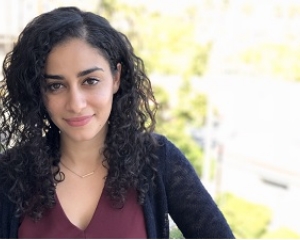

What Is Studying at Glasgow Medical School Like?
Glasgow delivers their learning through a range of teaching styles including small-group teaching, problem-based learning, lectures, vocational and clinical studies, labs and e-learning. Students gain experience in a clinical environment from year 1. The MBChB follows a “spiral curriculum” where subject material is revisited at different stages of the curriculum with increasing depth and clinical focus.
Students undertake two periods of elective study and can select from over 20 intercalated degree options, allowing flexibility to study areas of personal interest in more depth.
What is a week in first year like for Glasgow Medics?
“Here is how a standard week would look for me:
- Monday Morning: Problem Based Learning – Scenario
Monday Afternoon: Lecture (online or in person) - Tuesday: Lectures (online or in person)
- Wednesday morning: Vocational studies
Wednesday evening: No classes as a university policy to allow time for sports - Thursday morning: Problem based learning
- Friday: Feedback sessions online or Labs in person.”
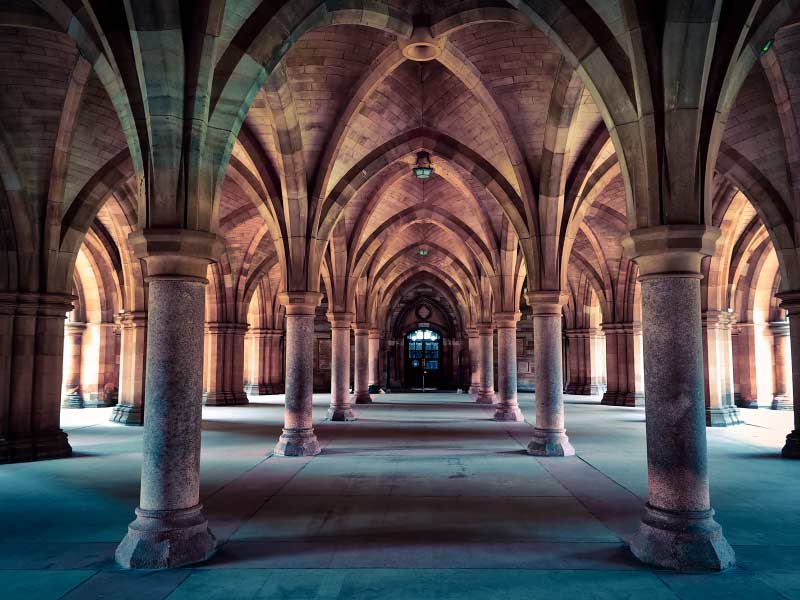
Glasgow Medical School Degree Content
Summary of the curriculum:
Phase 1.
Phase 1 makes up the first half of first year. The phase provides students with a basic biomedical sciences overview which is needed to engage in the rest of the undergraduate programme. Students undertake vocational & professional studies, and have their first Clinical skills sessions with visits to A&E wards or general practices.
Phase 2.
Phase 2 makes up the second half of first year and the entirety of second year. The phase covers the anatomy, physiology, pharmacology, biochemistry (and related biomedical sciences) of the major clinical systems, as well as continuing vocational studies. Professional studies, Communication skills and Clinical skills are a big part of phase 2.
Phase 3.
Phase 3 covers the first half of third year and is all about clinical systems with a focus on pathophysiology. Content covered in phase 3 includes pathology, microbiology, haematology, clinical biochemistry and clinical pharmacology, and the small-group teaching focuses on clinical cases, using case-based learning, with a clinical tutor. Students will be in a hospital or general practice for one day a week and will also receive clinical procedural skills teaching.
Phase 4.
Phase 4 makes up the second half of third year, the entirety of fourth year and most of fifth year. The phase is based in hospitals or GPs with some academic days. The teaching itself is scheduled around 5-10 week clinical attachments and students work through general medicine and surgery, obstetrics and gynaecology, child health, general practice, psychiatry and a variety of hospital sub-specialties. The final part of fifth year is the preparation for practice which follows final exams and it involves shadowing foundation-year doctors in hospitals with lectures too.
The Dentistry course is also split up into multiple phases (five in total) and like Medicine, students have the opportunity to develop their clinical skills through exposure to patients in all the different dental disciplines.
What Makes Glasgow Medical School Unique?
What makes your Medical School unique?
“Glasgow Medical School features a bi-weekly Problem-Based Learning structure, supplemented with lectures and labs. This encourages self-directed learning past the synchronised content. The Medical School places an emphasis on developing research and communication skills, in order to allow for effective learning in different styles at one’s own pace.
The School also features a spiral curriculum, meaning that content is revisited multiple times over the course of weeks, months and years, adding more detail each time, allowing knowledge to be consolidated and built on.”
Glasgow Medical School Entry Requirements
| Exam | Undergraduate Medicine |
|---|---|
| SQA Higher Entry Requirements (by end of S6) | – AAAAA Higher at end of S5 + BBB Advanced Higher or AB Advanced Higher + B Higher in S6. – Additional requirements: Highers Chemistry, Biology and Physics or Mathematics. National 5 English at Grade B. |
| A-levels | AAA including Chemistry and Biology or Physics. |
| GCSEs | English at Grade B or 6. GCSE Biology at Grade B or 6 (if not studied at A-level). |
| IB | – 38 (6,6,6 HL). – Additional requirements: HL subjects Chemistry and Biology SL Physics or Mathematics at 6 (HL recommended) SL English at 6. |
| Graduate Entry: | Minimum of 2.1 Honours degree in a relevant science degree, obtained within seven years of the entry date. |
| Exam | Undergraduate Dentistry |
|---|---|
| SQA Higher Entry Requirements (by end of S6) | – AAAAB Higher + B Advanced Higher (AABB S5 minimum for consideration). – Additional requirements: Biology and Chemistry at grade A, Maths/Physics and English/ESOL at grade C. Advanced Higher in Biology or Chemistry at grade B. |
| A-levels | – AAA. – Additional requirements: Chemistry and Biology at grade A. |
| GCSEs | 6 GCSE subjects at Grade A/7. Maths/Physics and English language/literature (English accepted at grade B/6 provided all other GCSEs are attained at grade A/7). |
| IB | – 36 (6,6,6 HL). – Additional requirements: Chemistry and Biology at HL, Maths/Physics at HL (if HL not possible then SL6 will be considered). |
Deferred entry is not available.
Craft an application worthy of Glasgow with 6med!
Our Complete Bundle provides support for your Personal Statement, UCAT, BMAT and Interview and guides you to a successful application.
With our Complete Bundle, we guarantee that you will get at least one offer to study Medicine, or your money back.
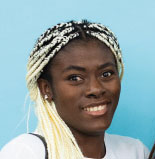

Glasgow Medical School Personal Statement
Your personal statement is likely to be used at some point in the application process to Glasgow Medical School. Work experience is expected to be undertaken by applicants so that students have a more realistic understanding of what a career in medicine entails and are aware of current issues facing the profession.
Students are also expected to show commitment to caring for others which can be demonstrated during voluntary or paid work in a community setting. All of this must be included in your personal statement.
Glasgow mention some of the key characteristics to demonstrate, aside from a commitment to caring. This is for the Dental students but will also be applicable if you are applying for Medicine:
- Be diligent and ethical
- Demonstrate having a caring nature, being empathetic and respectful of the views of others
- Demonstrate good communication skills
- Work in a team and have the capacity to act as a leader
- Be self-critical and self-motivating
- Be capable of independent thinking
- Plan and think on the spot, enjoy problem-solving and analysing information
- Show strong evidence of manual dexterity, creativity and spatial awareness.
Show you have the core values and skills of a good doctor.
Glasgow Medical School Admissions Tests
UCAT
All applicants applying to the Medicine or Dentistry course need to undertake the University Clinical Aptitude Test (UCAT). Historically, the minimum UCAT score or threshold score to get an interview offer has been around 2600-2680 and the highest scoring applicants achieve up to 3600. The BMAT is not required.
Glasgow Medical School Interview
Panel Interview Style
Interviews at Glasgow take the form of panel interviews. Glasgow normally interviews approximately 850 applicants from December onwards. Once the interview process is complete, all scores are accumulated and all applications are checked before offers are made. This stage runs until the end of March.
The interview session will last around 30 minutes in total, divided into two sections – a panel A and a panel B. Panel A will explore what being a doctor means and related topics around this. The panel B section will focus more on the applicant as a future doctor and will include a discussion of an ethical scenario – applicants choose one from two given scenarios.
Example Glasgow Medical School Interview Questions:
- Why this area of Scotland? (2020)
- The MBChB programme is organised into 4 phases, explain each. (2021)
- Why problem-based learning? (2018)
- What are the health issues Glasgow is facing compared to other areas? (2020)
- Why does Glasgow have such high rates of heart disease? (2019)
- Why do you want to come to the University of Glasgow? (2019)
- How are you suited to being a doctor? (2021)
- What are your personal strengths? (2018)
- Discuss your thoughts on organ donation. (2020)
- What hobbies do you have outside of your studies? (2021)
- Which qualities does a doctor need? (2021)
- What was the most important thing you’ve learned about Medicine during past work experience and why? (2019)
- Why are you choosing to study Medicine? (2018)
Extra-Curriculars at Glasgow Medical School
Outside of study time, what do most people get up to?
“Glasgow University Sports Association offers a variety of sports and activities in the Stevenson building and further at the Garscube sports complex. There is a gym as well with 15 platforms and a 100 person capacity. Byres Road is a busy street running perpendicular to University Avenue, containing many grocery shops, cafes, fast food and sit down restaurants. Ashton lane is a small lane near the university which contains some restaurants and pubs, although it can be quite expensive.
The Kelvingrove museum is situated in close proximity to the University, and entry is free. Kelvingrove park is located right next to the university, and it is a very big green space for activities, picnics etc. It is very lively on warm weather days.”
What is the Glasgow accommodation like?
“There are a wide variety of accommodation options such as Murano Street Student Village:
This is the largest of the accommodations, housing around 1300 students every year. Flats are either 11-12 person flats, or 5-6 person flats, and applicants can choose which one they prefer. The accommodation is situated near Ruchill Park, and is a 5 minute walk from a Tesco Extra, and a 10 minute walk from a Lidl. The walk to the University takes approx. 15-20 minutes. This accommodation is very social and lively, so it should be avoided if you prefer quiet accommodations with less noise and parties. The rooms are a good size and feature a double bed, a desk and a sink, however, it does not include en suite bathrooms. The rent is approx £120 per week.
Queen Margaret Residences:
The second most popular halls in Glasgow university. They feature larger rooms and kitchens, with ensuite bathrooms. It is also about 15-20 minutes from the university, but the rent is more expensive, at around £140 per week.”
Glasgow Medical School Contact
Telephone: +44 (0)141 330 6216
Email: [email protected]
Postal address:
Medical School Office
University of Glasgow
Glasgow G12 8QQ
Advice for prospective Glasgow medical school students
What advice would you give to a first-year student starting at Glasgow Medical School?
“Here are some of my top tips!
- Engage fully with the problem based learning.
- Find an arsenal of core textbooks to use for your self directed learning.
- Use the Glasgow University library as a study space.
- Do not worry about every single detail in first year, as it will all be revisited and consolidated and built on in the coming years due to the spiral curriculum.
Best of luck and have a great time! I’ll probably see you soon. :)”
Check out our other UK Medical School Reviews:
Not sure where to start with your Medical School application?
Our Complete Bundle provides support for your Personal Statement, UCAT, BMAT and Interview and guides you to a successful application.
With our Complete Bundle, we guarantee that you will get at least one offer to study Medicine, or your money back.
